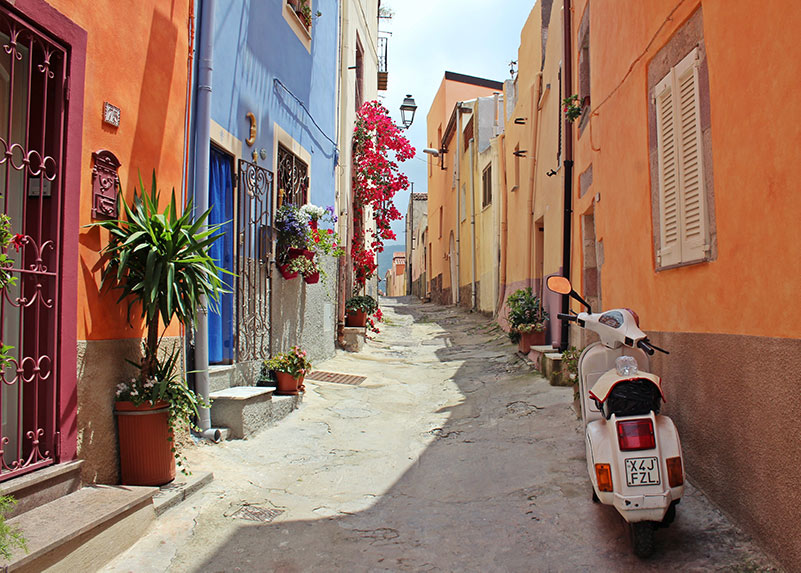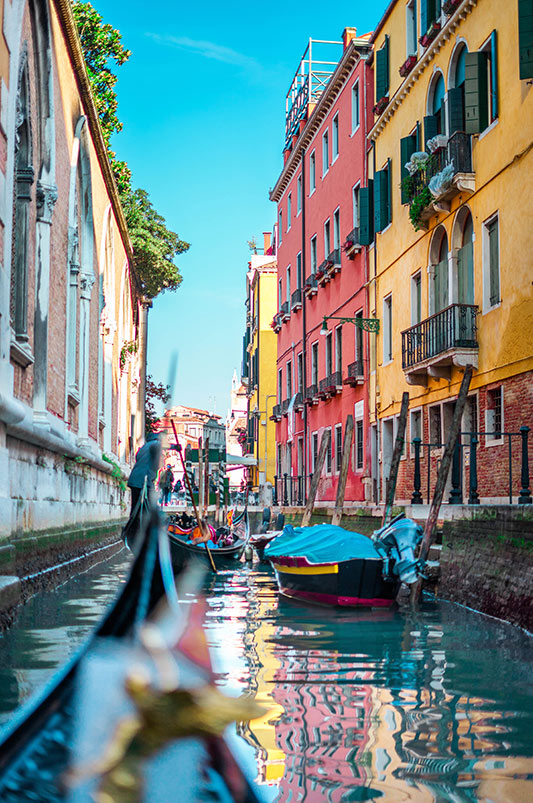Your guide to purchase a house in Italy
In Italy's major cities, there are newer houses and apartments in the younger districts and in the older districts a mix of turn-of-the-century houses and medieval buildings. Your broker has extensive experience in helping clients buy houses and apartments in Italy. At ebadpartners.se you will easily and quickly find your dream home in Italy. We work with many brokers, who guide you in the financial and legal issues that may arise.


The process of buying residence in Italy
The speculator begins by placing a bid on the house, property or owner-occupied apartment he or she is interested in. The offer is then accepted by the seller or negotiated until an agreed price. Then a preliminary purchase contract is drawn up which is written in both Italian and English, which is a private agreement between the seller and the buyer.
The purchase contract is drawn up by the local real estate agent and here all sales conditions and exact information about the property, obligation to give way, payments, date of access and that the apartment is not charged by pledge upon access are defined.
When signing a temporary purchase contract, the buyer pays a deposit of between 10-20% of the agreed price. Should the seller wish to withdraw after the temporary purchase contract has been signed, the seller must repay double the buyer's deposit, but if the buyer wants to withdraw, the buyer loses his entire deposit. This aims to protect the buyer from the seller selling to another customer. Between the temporary settlement and final purchase contract in front of the notary, one waits between 1-3 months. This is the time needed to prepare all documentation. Sometimes, however, it is possible to skip the temporary purchase contract and only make the final purchase contract.


"CODICE FISCALE" and bank account in Italy
The buyer needs to establish a so-called "Codice Fiscale" which is a tax number, it can be arranged at the nearest local tax office ("Agenzia delle Entrate") in Italy or at the Italian Embassy in Stockholm. There must be a purchase of a property in Italy to open a bank account and it costs nothing, however, a monthly fee may apply. It is important and necessary to have both a "Codice Fiscale" and an Italian bank account to make the final purchase contract.
Open a bank account in Italy
The buyer must open an Italian bank account as it will be necessary to transfer money to the Italian bank account before signing the final purchase contract.
Final purchase contract
The final purchase contract is signed in front of a notary, the professional authority that executes a legal sale. The notary's task is to check and guarantee that the property has a clean legal record and take care of any problems connected to the property should occur. Sales taxes must be paid by the buyer and the amount will depend on what the assessed value of that property is. The buyer must be present to sign all documents in front of the notary.
If the buyer does not speak Italian, he is assisted by a qualified translator who has, one verified by, among others, a Notary Public in Sweden, a power of attorney from the buyer. In connection with the notary visit, the buyer must pay the remaining part of the transaction, the notary, transfer tax and all other costs required to complete the contract. The transfer tax is calculated on the assessed value of the property in question.
Costs of purchase
When you buy a house or apartment in Italy, you will have to pay fees to the local real estate agent involved, transfer tax and fee to the notary.
These fees are listed and explained below.
Transfer tax
In Italy, all homes have a selling price (what is paid to the seller) and an assessed value. The assessment value is registered in "Catasto" (the property register) and this registration process is called "Visura Catastale". The assessed value tends to be lower than what the buyer pays to the seller. Transfer tax is calculated on the assessed value.
If you are going to live permanently in Italy
If you live or plan to apply for a residence permit within 18 months of signing the final purchase contract, you must pay a transfer tax of 3% of the assessed value of the property, plus 180 Euros in fee. The tax is increased to 4% if you acquire the property from a company.
If you are going to have your purchased property as a holiday home
You must pay a transfer tax of 10% of the assessed value of the property, 18% on agricultural land if any. If you buy a property for permanent residence do not apply for an Italian residence permit within 18 months after signing the final purchase contract, you will be required to pay an additional 7% on the assessed value and a fine.
Notary fee
The notary fee will vary depending on the assessed value of the property and the selected notary.
Mediation fee
The locally involved real estate agent and all local real estate agents in Italy charge 3% commission plus 22% VAT.
When you own a property, house or apartment in Italy
The following bills must be paid, according to consumption:
- Electricity (every two months)
- Gas (every two months)
- Telephone (every two months)
- Water (approx. 3 times a year)
- Garbage tax (once a year)
- Community fee for owner-occupied apartment and house with shared facility (monthly)
- ICI, property tax paid twice a year, in June and in December